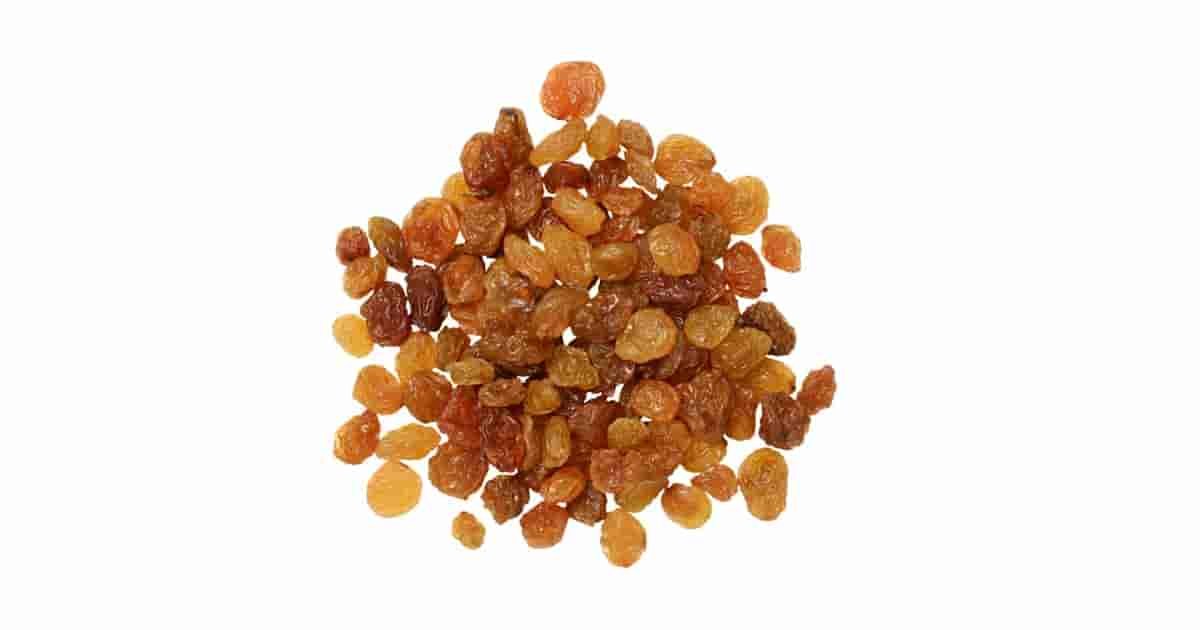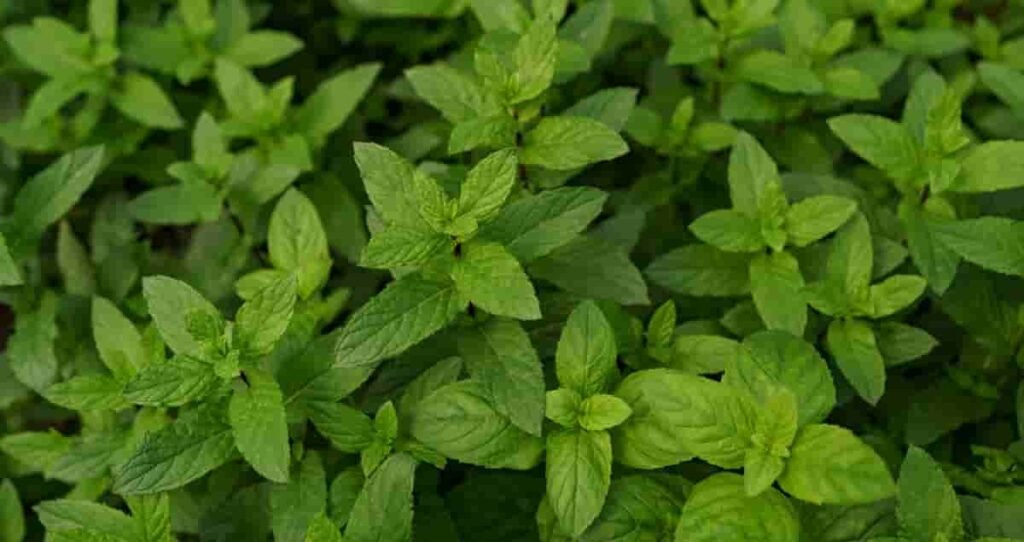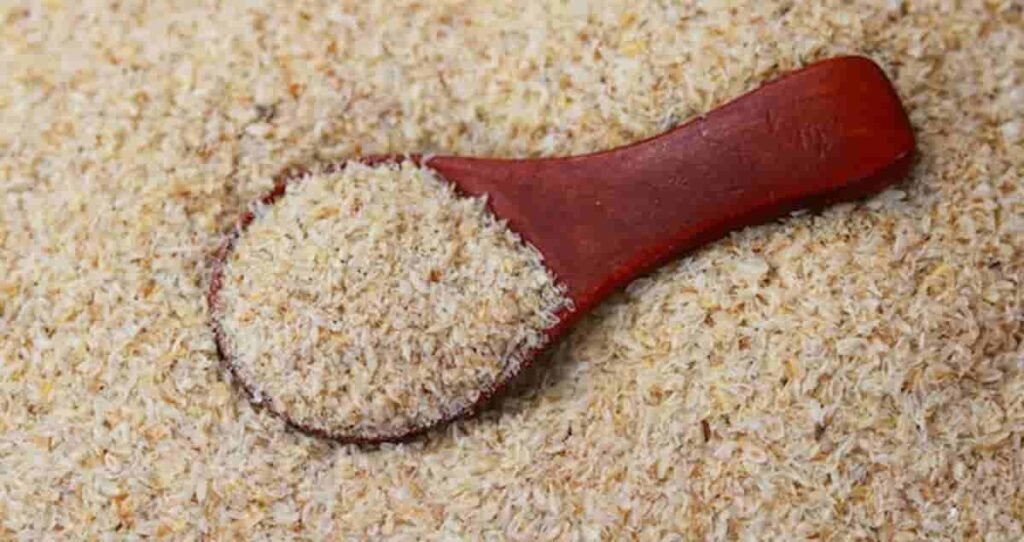Benefits of Boswellia. Boswellia, also known as Indian frankincense, is a resin derived from the Boswellia serrata tree, native to India, North Africa, and the Middle East. For centuries, it’s been a staple in traditional Ayurvedic medicine, revered for its potent anti-inflammatory and pain-relieving properties. While the aromatic resin has been used for burning as incense in religious and cultural ceremonies, modern science is increasingly backing its health benefits, making it a popular supplement for a range of conditions.
In this comprehensive guide, we’ll explore 14 amazing benefits of Boswellia, supported by scientific research, so you can understand how this ancient remedy might contribute to your overall well-being.
Benefits of Boswellia

Oh my goodness, Boswellia is an absolute game-changer! From soothing achy joints to promoting a healthy inflammatory response, this ancient herb is a total powerhouse. It’s like a natural hug for your body, helping you feel amazing and ready to conquer the day! Seriously, if you’re looking for a natural way to support your well-being, you HAVE to give Boswellia a try! You won’t regret it!
1. Powerful Anti-Inflammatory Action: Targeting the Root Cause
The cornerstone of Boswellia’s therapeutic prowess lies in its remarkable anti-inflammatory properties. Unlike many conventional anti-inflammatory drugs that target COX enzymes, Boswellia primarily inhibits the 5-lipoxygenase (5-LOX) enzyme, a key player in the production of leukotrienes. Leukotrienes are inflammatory molecules implicated in a variety of conditions, including arthritis, asthma, and inflammatory bowel disease (IBD).
By selectively inhibiting 5-LOX, Boswellia can help reduce inflammation without the common side effects associated with COX inhibitors, such as gastrointestinal distress. This targeted approach makes Boswellia a promising natural alternative or complementary therapy for managing inflammatory conditions.
2. Relief from Osteoarthritis: Reducing Pain and Improving Mobility
Osteoarthritis (OA), a degenerative joint disease, is characterized by the breakdown of cartilage and inflammation in the joints, leading to pain, stiffness, and reduced mobility. Numerous studies have investigated the efficacy of Boswellia in alleviating OA symptoms.
Research suggests that Boswellia can significantly reduce pain and improve physical function in individuals with OA, particularly in the knee. It’s believed that Boswellia’s anti-inflammatory action helps protect cartilage by inhibiting enzymes that degrade it, leading to improved joint health. Furthermore, some studies suggest it may even help in cartilage regeneration, although more research is needed to confirm this.
3. Managing Rheumatoid Arthritis: A Complementary Approach
Rheumatoid arthritis (RA) is an autoimmune disease characterized by chronic inflammation of the joints. While conventional treatments like disease-modifying antirheumatic drugs (DMARDs) are essential, some individuals seek complementary therapies like Boswellia to help manage their symptoms.
Similar to its effects on OA, Boswellia’s anti-inflammatory properties can help reduce joint pain, swelling, and stiffness associated with RA. However, it’s crucial to remember that Boswellia is not a replacement for conventional RA treatments and should be used under the guidance of a healthcare professional. It can be a helpful adjunct therapy to improve quality of life and potentially reduce the need for higher doses of conventional medications.
4. Soothing Inflammatory Bowel Disease (IBD): Promoting Gut Health
Inflammatory bowel disease (IBD), encompassing conditions like Crohn’s disease and ulcerative colitis, involves chronic inflammation of the digestive tract. Boswellia has shown promise in managing IBD symptoms due to its anti-inflammatory effects.
Studies have demonstrated that Boswellia can reduce inflammation in the gut, alleviating symptoms like abdominal pain, diarrhea, and rectal bleeding. Some studies have even found Boswellia to be comparable to conventional medications like mesalazine in treating ulcerative colitis, suggesting its potential as a natural alternative or complementary therapy.
5. Improving Asthma Symptoms: Opening Airways and Easing Breathing
Asthma, a chronic respiratory disease, involves inflammation and narrowing of the airways, leading to breathing difficulties. Boswellia’s anti-inflammatory properties can help reduce airway inflammation, thereby alleviating asthma symptoms.
Research indicates that Boswellia can significantly improve lung function, reduce the frequency of asthma attacks, and decrease the need for inhaled corticosteroids. Its ability to inhibit leukotrienes, key mediators of airway inflammation, plays a crucial role in its beneficial effects for asthma sufferers.
6. Potential Anti-Cancer Properties: A Promising Area of Research
Emerging research suggests that Boswellia may possess anti-cancer properties. Studies have shown that Boswellia extracts can inhibit the growth and spread of various types of cancer cells in laboratory settings, including breast, colon, pancreatic, and leukemia cells.
The mechanisms behind these anti-cancer effects are complex and not fully understood, but they may involve inhibiting angiogenesis (the formation of new blood vessels that feed tumors), inducing apoptosis (programmed cell death) in cancer cells, and modulating the immune system to fight cancer. While these findings are promising, it’s important to note that more research is needed to confirm Boswellia’s anti-cancer effects in humans. Boswellia should not be considered a substitute for conventional cancer treatments.
7. Skin Health Benefits: Calming Inflammation and Promoting Healing
Boswellia’s anti-inflammatory properties extend to skin health. It can help soothe inflammatory skin conditions like eczema, psoriasis, and acne. By reducing inflammation, Boswellia can alleviate redness, itching, and irritation associated with these conditions.
Some studies also suggest that Boswellia may promote wound healing by stimulating collagen production, a protein essential for skin elasticity and repair. Topical application of Boswellia creams or lotions may be beneficial for individuals with inflammatory skin conditions or those seeking to improve wound healing.
8. Cognitive Function and Memory Enhancement: Protecting the Brain
Preliminary research suggests that Boswellia may have cognitive benefits, potentially improving memory and cognitive function. Studies have shown that Boswellia can protect brain cells from damage caused by inflammation and oxidative stress.
By reducing inflammation in the brain, Boswellia may help improve cognitive function in individuals with age-related cognitive decline or neurodegenerative diseases like Alzheimer’s disease. However, more research is needed to confirm these potential cognitive benefits.
9. Supporting Heart Health: Reducing Inflammation and Oxidative Stress
Boswellia’s anti-inflammatory and antioxidant properties may contribute to heart health. Chronic inflammation and oxidative stress play a significant role in the development of cardiovascular diseases.
By reducing inflammation and protecting against oxidative damage, Boswellia may help lower the risk of heart disease. However, more research is needed to fully understand the effects of Boswellia on heart health. It’s important to consult with a healthcare professional before using Boswellia to manage heart-related conditions.
10. Pain Relief: A Natural Analgesic
Boswellia has been used for centuries as a natural analgesic to relieve pain. Its anti-inflammatory properties contribute to its pain-relieving effects by reducing inflammation, a major driver of pain perception.
Boswellia can be helpful for managing various types of pain, including joint pain, muscle pain, and headache. It may be a suitable alternative to conventional pain relievers for individuals seeking natural pain management options.
11. Liver Protection: Supporting Detoxification
The liver plays a crucial role in detoxification, filtering toxins from the blood. Studies have shown that Boswellia can protect the liver from damage caused by toxins and inflammation.
By reducing inflammation and oxidative stress in the liver, Boswellia may help improve liver function and support detoxification processes. This can be particularly beneficial for individuals with liver conditions or those exposed to toxins.
12. Anti-Microbial Properties: Fighting Infections
Boswellia exhibits antimicrobial properties, meaning it can help fight against certain bacteria and fungi. Studies have shown that Boswellia extracts can inhibit the growth of various microorganisms, potentially preventing or treating infections.
While more research is needed to fully understand the scope of its antimicrobial activity, Boswellia shows promise as a natural alternative to conventional antibiotics or antifungals.
13. Improved Sleep Quality: Reducing Inflammation and Promoting Relaxation
Chronic inflammation can disrupt sleep patterns, leading to insomnia and poor sleep quality. Boswellia’s anti-inflammatory properties may help improve sleep quality by reducing inflammation and promoting relaxation.
By calming the nervous system and reducing inflammation, Boswellia may help individuals fall asleep faster, stay asleep longer, and experience more restful sleep.
14. Reducing Allergic Reactions: Calming the Immune System
Allergic reactions occur when the immune system overreacts to harmless substances like pollen or pet dander. Boswellia’s anti-inflammatory properties can help reduce allergic reactions by calming the immune system and reducing inflammation in the airways and skin.
By inhibiting the release of inflammatory mediators like histamine, Boswellia may help alleviate allergy symptoms like sneezing, runny nose, itchy eyes, and skin rashes.
Conclusion: A Promising Natural Remedy with a Wide Range of Benefits
Boswellia offers a wide array of potential health benefits, primarily driven by its potent anti-inflammatory properties. From relieving arthritis pain to soothing inflammatory bowel disease and improving asthma symptoms, Boswellia has demonstrated remarkable therapeutic potential in numerous studies. While more research is needed to fully understand its mechanisms of action and confirm its effectiveness for various conditions, Boswellia holds significant promise as a natural remedy for promoting overall health and well-being.
Important Considerations:
- Dosage: Always consult with a healthcare professional to determine the appropriate dosage of Boswellia for your specific needs.
- Side Effects: Boswellia is generally considered safe, but some individuals may experience mild side effects like nausea, diarrhea, or stomach upset.
- Drug Interactions: Boswellia may interact with certain medications, such as blood thinners and immunosuppressants. It’s crucial to inform your doctor about all medications and supplements you’re taking before using Boswellia.
- Quality: Choose a reputable brand of Boswellia supplements to ensure quality and purity. Look for products standardized to contain a specific percentage of boswellic acids, the active compounds responsible for their therapeutic effects.
By understanding the potential benefits and considering these important factors, you can make an informed decision about whether Boswellia is a suitable addition to your wellness routine. Always prioritize consulting with a healthcare professional for personalized advice and guidance.
Also Read,
- Top 21 Important Benefits of Triphala
- What is Ashwagandha? | Important Herb
- Top 21 Important Benefits of Brahmi
- Viral News in Hindi
14 FAQs About the Benefits of Boswellia

1. What is Boswellia, and what are its active compounds?
Boswellia refers to a genus of trees, the most common being Boswellia serrata. The resin extracted from these trees is rich in bioactive compounds, particularly boswellic acids. These acids, especially AKBA (3-O-acetyl-11-keto-β-boswellic acid), are believed to be the primary drivers behind Boswellia’s therapeutic effects. AKBA, among other boswellic acids, has been shown to inhibit the enzyme 5-lipoxygenase (5-LOX), a key player in the inflammatory process. Other important constituents include essential oils, terpenes, and polysaccharides, which contribute to the overall efficacy of Boswellia.
2. How does Boswellia work to reduce inflammation?
The key mechanism behind Boswellia’s anti-inflammatory power lies in its ability to inhibit the 5-LOX enzyme. This enzyme is responsible for producing leukotrienes, inflammatory molecules that contribute to conditions like asthma, arthritis, and inflammatory bowel disease. By blocking 5-LOX, Boswellia effectively reduces the production of these inflammatory mediators, helping to alleviate pain, swelling, and stiffness. Unlike some conventional anti-inflammatory drugs, Boswellia doesn’t significantly inhibit COX enzymes (like ibuprofen does), which are important for maintaining stomach lining integrity. This means Boswellia may be gentler on the stomach compared to some over-the-counter pain relievers.
3. What are the primary health benefits associated with Boswellia?
Research suggests Boswellia may be beneficial for a variety of conditions, primarily those involving inflammation. Some of the key potential benefits include:
- Osteoarthritis and Rheumatoid Arthritis: Boswellia has demonstrated effectiveness in reducing pain, improving joint function, and increasing mobility in people with osteoarthritis and rheumatoid arthritis.
- Asthma: By inhibiting leukotriene production, Boswellia may help reduce inflammation in the airways, leading to improved breathing and reduced asthma symptoms.
- Inflammatory Bowel Disease (IBD): Studies suggest Boswellia can help reduce inflammation in the gut, potentially alleviating symptoms of Crohn’s disease and ulcerative colitis.
- Cancer: While research is preliminary, some studies suggest that boswellic acids may possess anti-cancer properties, potentially inhibiting cancer cell growth and promoting apoptosis (programmed cell death). Further research is needed to confirm these effects and explore their potential role in cancer treatment.
- Brain Health: Emerging research hints at Boswellia’s potential neuroprotective effects, possibly due to its anti-inflammatory and antioxidant properties. This could be beneficial for conditions like Alzheimer’s disease.
4. Is Boswellia effective for osteoarthritis? What does the research say?
Yes, numerous studies suggest that Boswellia can be effective for managing osteoarthritis symptoms. Research shows that it can significantly reduce pain, improve joint stiffness, and enhance physical function in individuals with osteoarthritis. Some studies have even shown Boswellia to be as effective as some conventional pain medications, with potentially fewer side effects. It’s important to note that the effectiveness can vary depending on the dosage, the specific Boswellia extract used (AKBA content is key), and individual factors.
5. Can Boswellia help with asthma symptoms?
Absolutely. Boswellia’s ability to inhibit leukotriene production makes it a promising natural remedy for managing asthma symptoms. Leukotrienes are key contributors to airway inflammation and constriction in asthma. By blocking their production, Boswellia may help reduce inflammation in the airways, improve airflow, and alleviate symptoms like wheezing, coughing, and shortness of breath. While Boswellia shouldn’t replace conventional asthma medications without consulting a doctor, it may be a valuable complementary therapy.
6. What is the recommended dosage of Boswellia?
The optimal dosage of Boswellia can vary depending on the specific product, the condition being treated, and individual factors. Generally, dosages range from 300 to 500 mg, taken two to three times daily. It’s crucial to follow the dosage instructions provided on the product label or as directed by a healthcare professional. Look for standardized extracts containing a high percentage of boswellic acids, particularly AKBA.
7. What are the potential side effects of taking Boswellia?
Boswellia is generally considered safe for most people when taken as directed. However, some individuals may experience mild side effects, such as:
- Nausea
- Diarrhea
- Heartburn
- Skin rash
Rarely, more serious side effects may occur. If you experience any unusual or severe symptoms while taking Boswellia, discontinue use and consult a healthcare professional.
8. Are there any drug interactions with Boswellia?
While Boswellia is generally well-tolerated, it’s important to be aware of potential drug interactions. Boswellia may interact with:
- Anticoagulants (blood thinners): Boswellia may have mild blood-thinning properties, so taking it with anticoagulant medications like warfarin could increase the risk of bleeding.
- Antiplatelet drugs: Similar to anticoagulants, Boswellia could potentially increase the risk of bleeding when taken with antiplatelet drugs like aspirin or clopidogrel.
- NSAIDs (Nonsteroidal anti-inflammatory drugs): While Boswellia has a different mechanism of action than NSAIDs, combining them may potentially increase the risk of gastrointestinal side effects.
Always inform your doctor about all medications, supplements, and herbal remedies you are taking, including Boswellia, to avoid potential interactions.
9. Is Boswellia safe for pregnant or breastfeeding women?
There is limited research on the safety of Boswellia during pregnancy and breastfeeding. Therefore, it’s generally recommended that pregnant and breastfeeding women avoid using Boswellia unless specifically advised by a healthcare professional.
10. How long does it take to experience the benefits of Boswellia?
The time it takes to experience the benefits of Boswellia can vary depending on individual factors, the condition being treated, and the dosage used. Some people may notice improvements in their symptoms within a few weeks, while others may require several months of consistent use to see significant results. It’s important to be patient and consistent with your Boswellia regimen to allow it to work effectively.
11. What should I look for when choosing a Boswellia supplement?
When choosing a Boswellia supplement, consider the following factors:
- Standardization: Look for products that are standardized to contain a specific percentage of boswellic acids, particularly AKBA (3-O-acetyl-11-keto-β-boswellic acid). A higher AKBA content generally indicates a more potent and effective product.
- Purity and Quality: Choose supplements from reputable brands that have been tested for purity, potency, and contaminants.
- Form: Boswellia is available in various forms, including capsules, tablets, powders, and topical creams. Choose the form that best suits your preferences and needs.
- Read Reviews: Check online reviews to see what other users have experienced with different Boswellia products.
- Consult Your Doctor: Talk to your healthcare provider before starting any new supplement, especially if you have underlying health conditions or are taking medications.
12. Can I use Boswellia topically for skin inflammation?
Yes, Boswellia is available in topical creams and ointments that can be applied directly to the skin to reduce inflammation and promote healing. Topical Boswellia may be helpful for conditions like eczema, psoriasis, and acne. Look for products that contain a significant concentration of boswellic acids for optimal effectiveness.
13. Is Boswellia sustainably sourced? How can I be sure I’m buying ethically?
The increasing popularity of Boswellia has raised concerns about the sustainability of Boswellia trees and the ethical sourcing of Boswellia resin. Overharvesting and unsustainable practices can threaten the long-term survival of these trees and negatively impact local communities.
To ensure you’re buying ethically sourced Boswellia:
- Look for certifications: Some organizations certify Boswellia products as sustainably harvested and ethically traded.
- Research the brand: Choose brands that are transparent about their sourcing practices and committed to sustainability.
- Support fair trade: Look for products that are labeled as fair trade, indicating that the harvesters and local communities have been compensated fairly.
14. Where can I buy Boswellia?
Boswellia supplements are widely available at health food stores, pharmacies, and online retailers. It is important to choose a reputable vendor to ensure you’re getting a high-quality product.


